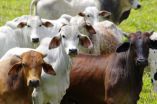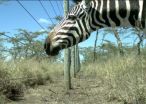(Press-News.org) Success really does breed success – up to a point - found researchers from UCL and Stony Brook University, following a series of unique on-line experiments.
For decades, it has been observed that similar people experience divergent success trajectories, with some repeatedly succeeding and others repeatedly failing. Some suggest initial success can catalyse further achievements, creating a positive feedback loop, while others attribute a string of successes to inherent talent. To test these views the researchers conducted four experiments that measured the impact of experimental support – such as a donation or positive endorsement – on subsequent success.
They found that success was more likely to follow initial assistance, with crowd-funders on kickstarter.com arbitrarily given an initial donation being about twice as likely to receive further contributions as others who only received funding through standard routes. In the ideological arena, the granting of a dozen signatures to a randomly selected petition on change.org led to the project attracting another endorsement more often than petitions that did not receive the orchestrated support. However, the magnitude of the support offered had little effect on the outcome.
Lead author on the paper, Dr Arnout van de Rijt (Institute for Advanced Computational Science, Stony Brook University, USA) said: "Theoretically, it's hard to see if the 'success breeds success' effect exists - it could be that it reflects genuine ability. To tease out where the success comes from, we did experiments that gave artificial help to some people and not others.
"In real-life environments, we gave success to some people in the form of a donation, ideological support, an endorsement or high status and found that these arbitrarily favoured people were more successful at the end than others not given this preferred treatment."
In the first experiment, the researchers donated funding to 100 of 200 new, unfunded projects on the crowd-funding website kickstarter.com and monitored the level of later funding. 39% of projects without the initial experimental donation attracted future donations, compared with 70% of those given the experimental donation – almost two times more.
The second experiment involved the website epinions.com, for which reviewers are paid for evaluations of new products according to how helpful website visitors rate their reviews. 90% of reviews which received experimental endorsement were rated as 'very helpful' within two weeks of treatment, compared to 77% in the sample without the initial boost.
In the third test, a random subset of the top 1% most productive editors on the website Wikipedia.org were conferred an award. During the observation period of five months, 31% of the editors without this start received a status award, whereas 40% of those given an initial status award attracted at least one more other award.
The fourth test used the petition website change.org, where people seek support from the general public for social and political goals through electronic signature campaigns. The researchers reviewed 200 early-stage campaigns and granted a dozen signatures to 100 campaigns chosen at random. They found that 52% of individuals who did not benefit from the signature package received at least one more signature, compared with 66% of those given an extra 12 signatures for the experiment.
However, when the research team carried out a second study to investigate whether success increases in proportion to the help given, they found that, for example, giving twice as much funding does not provide twice as much success.
Dr Soong Moon Kang (UCL Management Science & Innovation, UK) said: "Our research has implications for the success of initiatives to counter inequality and create a more meritocratic society. It also suggests that these don't need to be big or costly to help: it's the initial boost that matters. We also find that interventions have much more effect on those coming from very little."
INFORMATION: For press enquiries, contact Cher Thornhill on +44 (0)20 3108 3846 or c.thornhill@ucl.ac.uk
About UCL (University College London)
Founded in 1826, UCL was the first English university established after Oxford and Cambridge, the first to admit students regardless of race, class, religion or gender and the first to provide systematic teaching of law, architecture and medicine. We are among the world's top universities, as reflected by our performance in a range of international rankings and tables. According to the Thomson Scientific Citation Index, UCL is the second most highly cited European university and the 15th most highly cited in the world. UCL has nearly 27,000 students from 150 countries and more than 9,000 employees, of whom one third are from outside the UK. The university is based in Bloomsbury in the heart of London, but also has two international campuses – UCL Australia and UCL Qatar. http://www.ucl.ac.uk | Follow us on Twitter @uclnews | Watch our YouTube channel YouTube.com/UCLTV
Success really does breed success, unique online experiments find
2014-04-28
ELSE PRESS RELEASES FROM THIS DATE:
How Brazilian cattle ranching policies can reduce deforestation
2014-04-28
Berkeley — There is a higher cost to steaks and hamburgers than what is reflected on the price tags at grocery stores and restaurants. Producing food – and beef, in particular – is a significant source of greenhouse gas emissions, which are projected to grow as rising incomes in emerging economies lead to greater demands for meat.
But an encouraging new study by researchers at the University of California, Berkeley, and international collaborators finds that policies to support sustainable cattle ranching practices in Brazil could put a big dent in the beef and food ...
Brazilian agricultural policy could cut global greenhouse gas emissions
2014-04-28
Brazil may be able to curb up to 26% of global greenhouse gas emissions from deforestation by encouraging the intensification of its cattle production, according to a new study from researchers at the International Institute for Applied Systems Analysis (IIASA) and international collaborators.
The study, published in the journal Proceedings of the National Academy of Sciences, showed that by subsidizing semi-intensive pasture-based cattle production or taxing conventional pastures Brazil may be able to deliver a substantial cut in global greenhouse gas emissions, even ...
Oxytocin promotes social behavior in infant rhesus monkeys
2014-04-28
The hormone oxytocin appears to increase social behaviors in newborn rhesus monkeys, according to a study by researchers at the National Institutes of Health, the University of Parma in Italy, and the University of Massachusetts Amherst. The findings indicate that oxytocin is a promising candidate for new treatments for developmental disorders affecting social skills and bonding.
Oxytocin, a hormone produced by the pituitary gland, is involved in labor and birth and in the production of breast milk. Studies have shown that oxytocin also plays a role in parental bonding, ...
Scientists identify antibodies against deadly emerging disease
2014-04-28
Scientists at Dana-Farber Cancer Institute have identified natural human antibodies against the virus that causes Middle East Respiratory Syndrome (MERS), a step toward developing treatments for the newly emerging and often-fatal disease.
Currently there is no vaccine or antiviral treatment for MERS, a severe respiratory disease with a mortality rate of more than 40 percent that was first reported in Saudi Arabia in 2012.
In laboratory studies reported in the Proceedings of the National Academy of Sciences (PNAS), the researchers found that these "neutralizing" antibodies ...
Study: Tart cherry juice increases sleep time in adults with insomnia
2014-04-28
SAN DIEGO, Calif. April 28, 2014 – A morning and evening ritual of tart cherry juice may help you sleep better at night, suggests a new study presented today at the Experimental Biology 2014 meeting. Researchers from Louisiana State University found that drinking Montmorency tart cherry juice twice a day for two weeks helped increase sleep time by nearly 90 minutes among older adults with insomnia.
These findings were presented Monday, April 28, at the "Dietary Bioactive Components: Antioxidant and Anti-inflammatory Effects of Dietary Bioactive Components" section of ...
Decrease in large wildlife drives an increase in rodent-borne disease and risk to humans
2014-04-28
Populations of large wildlife are declining around the world, while zoonotic diseases (those transmitted from animals to humans) are on the rise. A team of Smithsonian scientists and colleagues have discovered a possible link between the two. They found that in East Africa, the loss of large wildlife directly correlated with a significant increase in rodents, which often carry disease-causing bacteria dangerous to humans. The team's research is published in the Proceedings of the National Academy of Sciences, April 28.
"Our study shows us that ecosystem health, wildlife ...
Smart home programming: Easy as 'if this, then that'
2014-04-28
PROVIDENCE, R.I. [Brown University] — The idea of a smart home sounds promising enough. Who doesn't want a house full of automated gadgets — from light switches to appliances to heating systems — that know exactly when to turn on, turn off, heat up or power down?
But in order for all those devices to do what they're supposed to do, they'll need to be programed — a task the average homeowner might not have the interest or the tech-savvy to perform. And nobody wants to call tech support just to turn on a light.
A group of computer science researchers from Brown and Carnegie ...
Satellite movie shows US tornado outbreak from space
2014-04-28
VIDEO:
This animation of NOAA's GOES-East satellite data shows the development and movement of the weather system that spawned tornadoes affecting seven central and southern US states on Apr. 27-28, 2014....
Click here for more information.
NASA has just released an animation of visible and infrared satellite data from NOAA's GOES-East satellite that shows the development and movement of the weather system that spawned tornadoes affecting seven central and southern U.S. states ...
NIH scientists establish monkey model of hantavirus disease
2014-04-28
WHAT: National Institutes of Health (NIH) researchers have developed an animal model of human hantavirus pulmonary syndrome (HPS) in rhesus macaques, an advance that may lead to treatments, vaccines and improved methods of diagnosing the disease. The study, conducted by researchers at NIH’s National Institute of Allergy and Infectious Diseases (NIAID), is published in the Proceedings of the National Academy of Sciences.
People become infected with hantaviruses by inhaling virus from the urine, droppings or saliva of infected rodents. This infection can progress to HPS, ...
A water test for the world
2014-04-28
HAMILTON, April 28, 2014 – Inspiration can come in many forms, but this one truly was a breath of fresh air.
A group of McMaster researchers has solved the problem of cumbersome, expensive and painfully slow water-testing by turning the process upside-down.
Instead of shipping water to the lab, they have created a way to take the lab to the water, putting potentially life-saving technology into the hands of everyday people.
The team has reduced the sophisticated chemistry required for testing water safety to a simple pill, by adapting technology found in a dissolving ...






